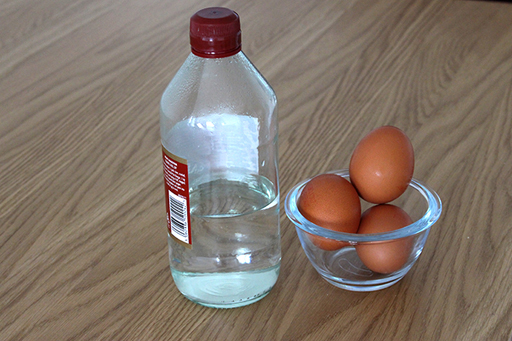2.3 Why is the stomach so acidic?
There seem to be two important reasons why the stomach produces so much acid. Firstly, it kills most of the bacteria that we accidentally take in with our food which might cause food poisoning. Unfortunately, some kinds of bacteria can resist the stomach acid and go on to cause problems, often because of the toxins they produce.
More importantly in terms of digestion, the stomach acid coagulates some of the proteins in the food that you eat, this makes it easier for the enzymes to attach and digest them.
It’s not just in the stomach that acids coagulate proteins. Many people add a splash of vinegar (acetic acid) to the water when they boil eggs (Figure 4). Have you ever thought why?
Egg white is mostly a mix of protein and water. If the egg shell cracks while the eggs are being boiled, the liquid white begins to escape from the crack. Vinegar makes it coagulate faster than it otherwise would and seals up the crack in the shell, so that no more escapes.
Similarly, vinegar is often added to the water in which poached eggs are cooked, to make the white coagulate more quickly and spread out less in the water. A teaspoon of lemon juice or vinegar added to egg whites when making meringues has the same effect. It helps the meringue to keep its shape better by slightly solidifying the egg white protein. The coagulation effect is the same on any proteins in your diet. For instance, the proteins in meat are made more solid. Once the proteins are solidified, the enzymes produced by the stomach wall act on them.

